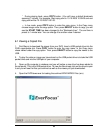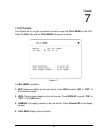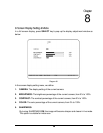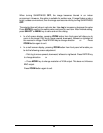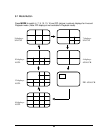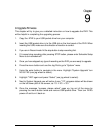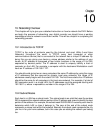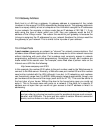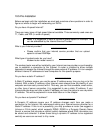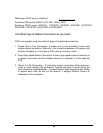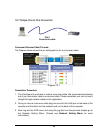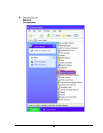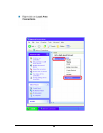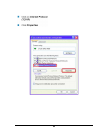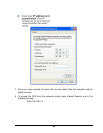
1
1
0
0
.
.
5
5
P
P
r
r
e
e
-
-
I
I
n
n
s
s
t
t
a
a
l
l
l
l
a
a
t
t
i
i
o
o
n
n
Before we begin with the installation we must ask ourselves a few questions in order to
figure out where to begin with networking our DVR’s.
Do you have Hi-speed Internet? ______________
There are many types of high speed Internet available. Three commonly used ones are
T1, Cable, and DSL (in order of speed).
Note: It is suggested to have a minimum upload speed of 256KBps. This
can be addressed by the Internet Service Provider.
Who is your Internet provider? ______________
Please confirm that your internet service provider that our upload
speed is at least 256KBps.
What type of modem/router do you have? ______________
Modem/router model name/ #
The modem/router was either installed by your Internet service provider or purchased by
you to establish a connection to the Internet. A router is installed to allow multiple
computers to access the Internet through the same external IP address. It in turn assigns
different internal IP addresses to local computers for this specific purpose.
Do you have a static IP address? ______________
A Static IP address means you use the same IP address every time you log on to the
Internet. With a static IP address, other Internet users always know the identity of your
computer and can easily connect with it. That way, you can host a website, email server,
or other type of server connection. It is suggested to use a static IP address. If your
Internet provider does not offer a static IP address you have the option to use a dynamic
IP address. This will be explained in more detail later on in the chapter.
Do you have a dynamic IP address? ______________
A Dynamic IP address means your IP address changes each time you make a
connection to the Internet. We recommend asking your Internet service provider for a
Static IP address. If this is not a possibility, you may purchase a router (we suggest a
Linksys or D-link router) which supports DDNS. DDNS is a Dynamic Domain Name
Server, a service that provides a central (public) database where DNS information can
be stored and retrieved. It allows those using a dynamic IP address to be registered
centrally so users can connect to it by name.
88



